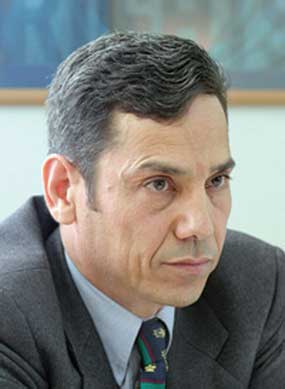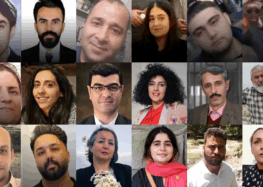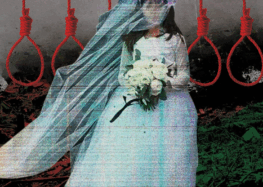Excessive Bail Set for Imprisoned Lawyer’s Brief Furlough
While imprisoned Iranian lawyer Abdolfattah Soltani has technically been granted furlough, judicial authorities have set his bail so high as to effectively deprive him of it, his daughter told the International Campaign for Human Rights in Iran. The bail set for his furlough is approximately US$1 million, an amount entirely out of reach of Soltani’s family assets.
“For a few days of furlough for my father, they asked for a bail in excess of 1 billion toman [(1 toman = 10 rials)]. According to the law, the bail amount set for the release of prisoners on furlough should be based on the length of their prison sentence. My father is sentenced to 13 years in prison, 11.5 years of which remain. His bail for furlough should have been set at under 100 million toman, but the authorities demanded several times this amount. My father said that the amount of this bail is illegal and so didn’t agree to it; therefore his request for furlough was refused,” his daughter Maedeh Soltani told the Campaign.
Abdolfattah Soltani, a prominent human rights lawyer, was arrested on September 10, 2011. On January 8, 2012, Branch 26 of Tehran Revolutionary Court under Judge Pirabbasi sentenced him to 18 years in prison, exile to Borazjan, and 20 years’ ban on his legal practice on charges of “being awarded the [2009] Nuremberg International Human Rights Award,” “interviewing with media about his clients’ cases,” and “co-founding the Defenders of Human Rights Center.” His sentence was reduced to 13 years at appeals level. He spent months inside the Intelligence Ministry’s Ward 209 at Evin Prison, and developed severe anemia as a result of prison conditions.
Imprisonment in exile is against domestic Iranian law. A convict may serve a prison term or be exiled, but not both. Several lawyers and human rights activists have objected to Soltani’s sentence, since it punishes his family in addition to the prisoner himself: the prison time in exile severely restricts his family’s access to visitation due to the 800 kilometer distance between Borazjan and Tehran, where Soltani’s family lives.
Regarding Soltani’s physical and psychological conditions, Maedeh Soltani told the Campaign, “My mother visited with my father yesterday [March 3, 2013] and he was well. My father was transferred to a hospital last month for treatment of hemorrhoids and severe anemia, conditions he developed in prison. He is feeling a lot better now. His psychological state is good, too.”
Addressing the Iranian judicial authorities, Maedeh Soltani said, “I would like to ask why, by setting a bail amount that does not match his assets, they would deny the right to furlough as a minimum, to a prisoner who has faced so much injustice, facing such a long prison term. I would like to know the real reason for all the injustice unleashed on my father. I wish someone would tell me.”







